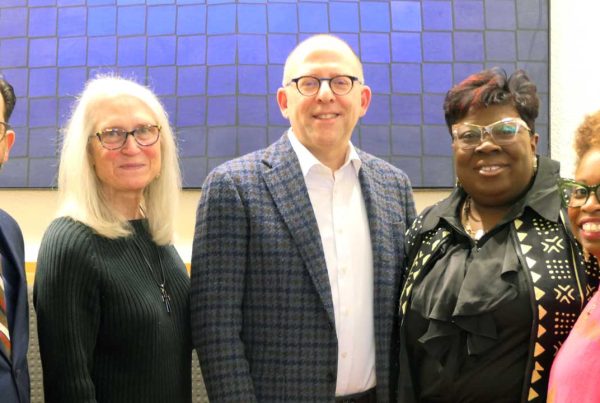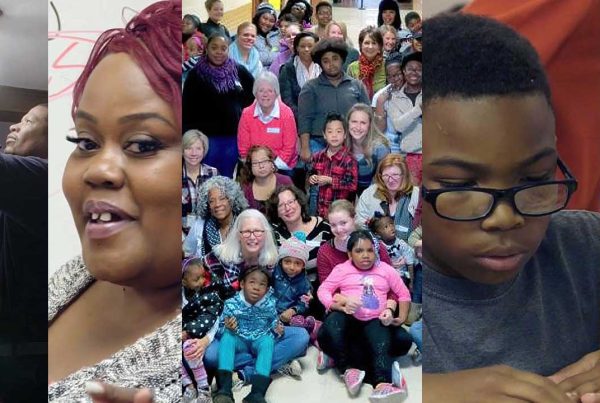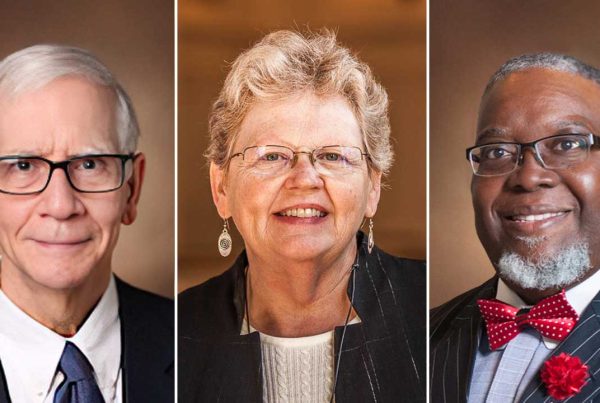 For the safety of its community members during the COVID-19 pandemic, CTS has since March maintained its operations and classes entirely online, a move that has created valuable new learning opportunities for interns and residents at the CTS Counseling Center. The Counseling Center, which had historically offered services in person, has transitioned entirely to using online telehealth services. Bryan Votaw, CTS alum and Clinic Director at the Counseling Center, said that responding to the needs of the moment has opened a new “frontier of learning” by giving clinicians an opportunity to become familiar with a tool that had not previously been a part of the training at CTS.
For the safety of its community members during the COVID-19 pandemic, CTS has since March maintained its operations and classes entirely online, a move that has created valuable new learning opportunities for interns and residents at the CTS Counseling Center. The Counseling Center, which had historically offered services in person, has transitioned entirely to using online telehealth services. Bryan Votaw, CTS alum and Clinic Director at the Counseling Center, said that responding to the needs of the moment has opened a new “frontier of learning” by giving clinicians an opportunity to become familiar with a tool that had not previously been a part of the training at CTS.
Votaw explained that the move to using telehealth has allowed the Counseling Center to remain open to the public in a way that allows for the provision of good care while keeping both clinicians and clientele safe. The pandemic required a sudden shift to online services, which, Votaw explained, wasn’t always easy. “There were some initial bumps in transitioning from an entirely in-person practice that relied on a lot of physical/paper documents and forms to a completely virtual and almost entirely paperless operation. But,” he said, “the CTS community came together at all levels to ensure that services were not interrupted for our clientele and that the education of our clinicians in training would not cease.”
Hazel Owens, a 2020 MDiv/MAMFT alum, is currently a resident at the Counseling Center. Owens saw clients in person before the pandemic and has, like her colleagues, recently made the shift to using telehealth services. She said that, “like any change, there have been some adjustments. However, I have embraced the change as an opportunity to serve more people across the state.” She explained that one of the most difficult aspects of telehealth is not being able to connect as easily with nonverbal forms of communication, but that “telehealth has begun to enhance my skill set… While I love being in-person and would potentially do most of my counseling that way post pandemic, I am open to continuing to provide telehealth services as an option. I like the ability of being flexible for myself and my clients.”
Echoing many of Owens’ comments, Kaitlyn Ferry, a third year MDiv/MACMHC student and intern at the Counseling Center, began seeing clients during the transition to telehealth in May. Although she expected her internship to include in-person experiences, Kaitlyn said that the systems put in place have worked “remarkably well to provide services to clients.” The adoption of new technologies always comes with a learning curve, but Kaitlyn explained that the opportunity to learn to use telehealth “has given me a skill that I can carry into the future.”
Prof. Christina Davis, a faculty member in CTS’s MAMFT program and supervisor at the Counseling Center, said that recent telehealth training has given clinicians another important tool to help “lower barriers to mental health for those unable to physically access it.” She said that she hopes the experience will encourage clinicians to “continue to be open to exploring new therapy modalities.”
Regarding the use of new technologies in clinical practice, Votaw explained, “We don’t know exactly what the future will look like, but it seems clear that the enhanced relationship between technology and clinical practice that resulted from the pandemic will not be temporary.” He continued, “In the future, it seems that services will continue to be provided in-person, but we hope that we will be able to continue to provide services over telehealth, as well.” He stressed that, “we are physical bodies that crave to be around other physical bodies. But there’s something to be said about new opportunities that the technology provides to expand our care.”
As unexpected as this transition to telehealth has been, Votaw said, it has provided for clinicians “a great opportunity to learn the way of the future.”
Learn more about the CTS Counseling Center here.





